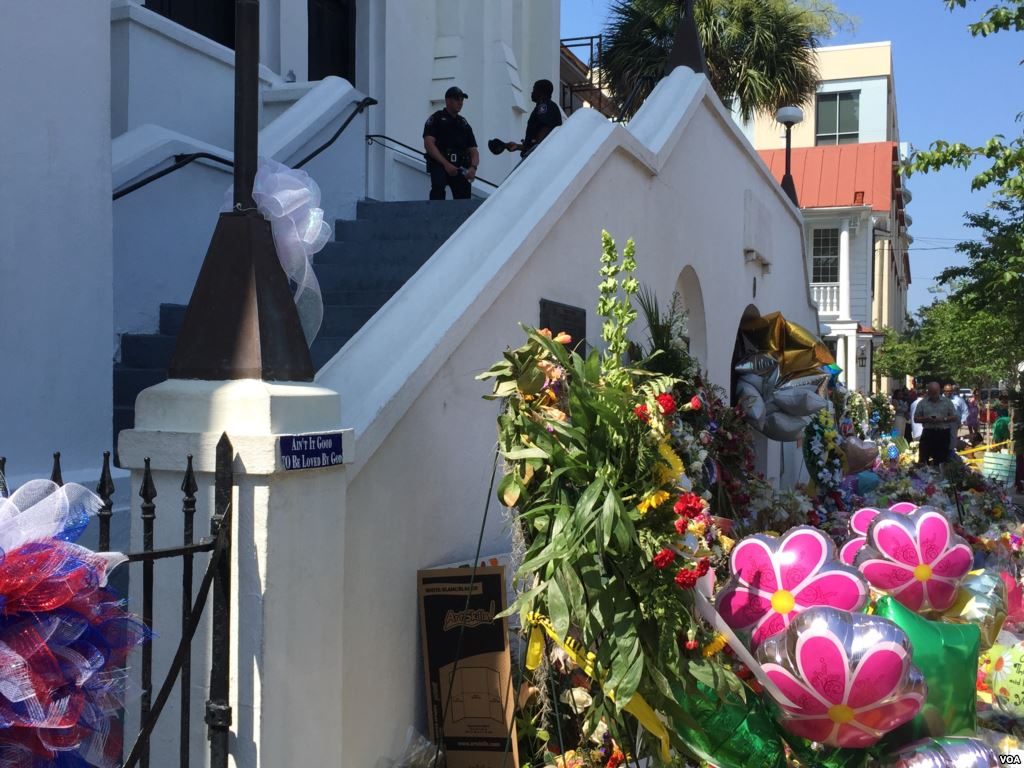
(Photo Credit: Michael Bowman, Public Domain)
On August 30, 2019, a judge in the 4th Circuit Court of Appeals ruled that survivors of a mass shooting in 2015 can sue the United States Government over its alleged negligence when Dylann Roof was allowed to buy the gun he used to shoot and kill a pastor and eight parishoners at Emanuel African Methodist Episcopal Church in Charleston, South Carolina on June 17, 2015. Due to a series of mistakes made during the background check process, Roof was able to legally purchase the .45-caliber Glock semiautomatic pistol he used to shoot and kill the people he had just sat with during an hour-long Bible study session.
What Went Wrong
As the investigation into what went wrong progressed in 2015 and 2016, then FBI Director James Comey said several mistakes had been made during the background check process. Keep in mind that under the normal process, if gun dealers do not hear back by the FBI with a flat denial of a gun purchase in three days, those gun dealers are legally permitted to sell the firearm to the person wanting to buy it.
While the details of exactly what went wrong are a bit confusing, it basically comes down to a series of mistakes being made in the process of checking Dylann Roof’s background for criminal convictions. On April 11, 2015 Roof tried to buy a handgun from a gun dealer in West Columbia, South Carolina; Columbia is the capital of South Carolina, and West Columbia is city and commuter town in the suburban eastern sections of Lexington County, South Carolina. It is in close proximity to the greater Columbia, SC metropolitan area of the state.
As per the usual process, an FBI examiner was assigned Roof’s request for the purchase of a handgun, and the background check process began just as it does with hundreds of thousands of others on a regular basis. The FBI examiner was based in West Virginia and began her investigation of Roof’s background by finding Roof’s arrest on March 1 of that same year on a felony drug charge. The record she found did not show a conviction of this charge, so she kept checking. Without evidence of a conviction, a gun purchase cannot be denied.
What contributed to the confusion is that Roof’s rap sheet mistakenly listed the Lexington County Sheriff as the arresting authority. The FBI examiner reached out to the sheriff’s office and the prosecutor’s office, but the examiner was told the Roof case was not theirs. Those offices told her to check with the police in Columbia, South Carolina. The FBI examiner then consulted a contact sheet for all the local names and numbers, but she did not see anything for Columbia, South Carolina. She then called law enforcement in West Columbia where he tried to buy the gun in the first place, and those officials told her they had no record of the case (because he had not been arrested in West Columbia; that is where he tried to buy the gun).
The FBI examiner turned to other inquiries (as part of her normal job duties) and waited to hear back from prosecutors and law enforcement to get a definitive answer on whether or not Dylann Roof had been convicted of a crime. Had the FBI contacted the proper arresting authority in the first place and read the arrest record, she would have seen that Dylann Roof admitted to possessing a controlled substance, which would have triggered an FBI denial of his weapon purchase on the grounds that he was an “unlawful drug user or drug addict.”
Yes, a series of mistakes played a role in Roof acquiring the firearm he used to shoot the churchgoers and pastor that horrible day in June 2015, but had all parties had more time to thoroughly investigate Roof’s background, the gun purchase would have been denied. This is a prime example of why so many gun reform advocates are asking to give officials a longer time period to complete a thorough background check for each and every gun purchase.
Roof, who is now 25 years old, was sentenced to death in January 2017 after being convicted on 33 federal counts related to the shooting. He pleaded guilty three months later to state murder charges; Roof was sentenced to nine consecutive life terms without parole.



Leave a Comment